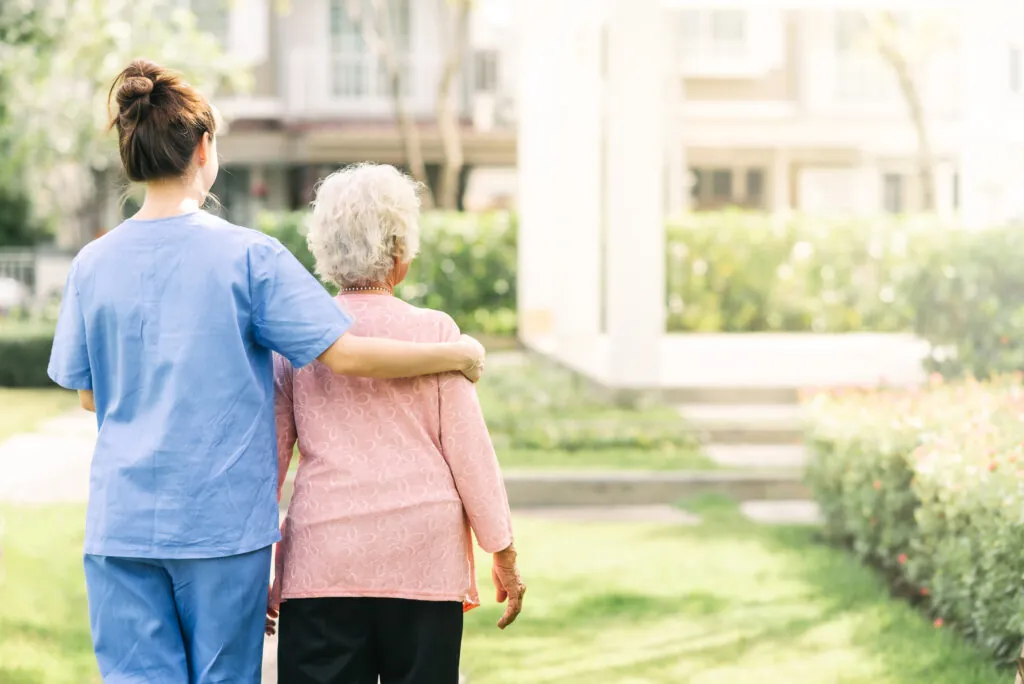Natural Disasters & Legal Risks in Florida Nursing Homes
Natural disasters pose significant challenges to vulnerable populations, and Florida nursing homes are no exception. The state’s frequent exposure to hurricanes and severe weather events places a unique burden on these facilities to ensure the safety and well-being of elderly residents. Unfortunately, despite stringent legal requirements and the inherent duty of care owed to residents, many nursing homes fall short during emergencies.
In this comprehensive article, we will explore the legal challenges nursing homes in Florida face during natural disasters. We will discuss the legal obligations these facilities must meet, common vulnerabilities that put them at risk, real-life case studies highlighting the consequences of non-compliance, and how families can take action if they believe a nursing home failed to protect their loved one.
Understanding Legal Obligations in Florida Nursing Homes
Why Are Nursing Homes Legally Obligated to Prepare for Disasters?
Nursing homes in Florida have a legal and ethical obligation to protect residents during emergencies. Due to the vulnerability of elderly populations, state and federal regulations mandate that these facilities take specific actions to ensure safety during natural disasters.
What Happens When Nursing Homes Fail to Comply?
Failure to comply with legal standards can lead to severe consequences, including lawsuits, fines, revocation of licenses, and criminal charges. Nursing homes that do not adequately prepare can face public backlash, damaging their reputation and leading to a loss of public trust.
Federal Emergency Preparedness Requirements
Who Regulates Nursing Home Disaster Preparedness?
Federal regulations, primarily governed by the Centers for Medicare and Medicaid Services (CMS), require all nursing homes to develop comprehensive emergency preparedness plans. These regulations ensure that nursing homes are equipped to handle various types of natural disasters and emergencies.
What Should an Emergency Preparedness Plan Include?
A comprehensive emergency preparedness plan must include several critical elements:
- Strategies for maintaining resident safety during emergencies.
- Clear allocation of staff roles and responsibilities.
- Coordination with local emergency response agencies.
- Management of medical needs and essential life-sustaining equipment.
- Regular updates and staff training on disaster response.
How Often Should Plans Be Reviewed?
CMS mandates that nursing homes conduct annual reviews and training sessions to ensure their preparedness plans are up-to-date. This process helps identify gaps and make necessary adjustments to enhance readiness.
Florida-Specific Guidelines for Nursing Home Safety
Why Are Florida Nursing Homes at Greater Risk?
Florida’s geographic location makes it highly susceptible to hurricanes and severe weather. Due to this increased risk, the state has established additional regulations specifically aimed at hurricane preparedness and response.
What Are the Key State Requirements?
Evacuation Planning: What Must Be Included?
Evacuation plans are a fundamental requirement. Florida law mandates that nursing homes develop a clear strategy for moving residents to safety. These plans must include the following:
- Identification of safe evacuation locations.
- Transportation logistics tailored to the needs of elderly residents.
- Continuous medical care during transit and at the evacuation site.
Power Backup Systems: Are Generators Mandatory?
Yes, Florida law requires nursing homes to maintain generators capable of powering critical systems during outages. This requirement became more stringent after several incidents where lack of power led to severe health risks.
Medical Equipment Maintenance: How Is Compliance Ensured?
To maintain safety, nursing homes must regularly inspect and maintain essential medical equipment. This includes ventilators, oxygen supplies, and dialysis machines. Backup systems should be tested frequently to guarantee functionality when needed most.
Training and Preparedness Drills
How Often Should Drills Be Conducted?
Regular staff training and preparedness drills are critical for effective disaster management. Florida requires nursing homes to conduct these drills at least annually. However, best practices suggest conducting them quarterly to ensure staff readiness.
What Should Drills Include?
Drills should simulate real emergency scenarios, such as power outages, flooding, and the need for mass evacuation. Staff must practice:
- Evacuating residents with mobility challenges.
- Maintaining communication with family members.
- Operating backup power and medical equipment.
Common Legal Vulnerabilities Nursing Homes Face
Why Are Some Nursing Homes Unprepared Despite Regulations?
Despite the legal requirements, some nursing homes remain unprepared due to various factors, including budget constraints, inadequate staff training, or complacency. These shortcomings can result in severe legal and ethical consequences.
Failure to Evacuate: Legal Consequences
When Is Evacuation Legally Required?
Evacuation becomes a legal obligation when staying in the facility poses a direct threat to residents. Situations warranting evacuation include flooding, structural damage, or prolonged power outages that compromise safety.
What Are the Legal Consequences of Failing to Evacuate?
Failing to evacuate can result in criminal charges if residents are harmed. Civil lawsuits may also follow, especially if families can prove negligence or lack of preparedness.
Case Study: The Hurricane Irma Tragedy
During Hurricane Irma in 2017, a Florida nursing home failed to evacuate, resulting in multiple deaths due to heat exposure after the facility lost power. Lawsuits alleged that the nursing home neglected residents’ safety by not acting promptly. The case highlighted the critical importance of having a functional evacuation plan and backup power systems.
Inadequate Emergency Planning: Legal and Practical Failures
Why Do Some Nursing Homes Lack Proper Planning?
Many nursing homes struggle with inadequate planning due to outdated policies, lack of training, or failure to update procedures regularly. These gaps can lead to chaos during emergencies, putting residents’ lives at risk.
What Are the Consequences of Poor Planning?
Poor planning can lead to insufficient medical care during disasters. For example, if backup generators fail, residents who rely on medical devices may face life-threatening situations. Additionally, lack of adequate food, water, and sanitary supplies can cause severe health issues during prolonged emergencies.
Neglect and Abandonment: Ethical and Legal Implications
Why Do Staff Sometimes Abandon Their Duties?
During high-stress situations, some staff members may abandon their duties due to fear or lack of preparation. This abandonment can lead to residents being left without necessary care and assistance.
Legal Ramifications of Abandonment
In Florida, abandoning residents during a disaster is considered gross negligence and can result in both criminal charges and civil liability. Nursing homes must have clear protocols to ensure that essential staff remain on duty during emergencies.
Case Study: Staffing Failures During a Hurricane
One nursing home in Florida faced legal action when several staff members left their posts during a hurricane, leaving vulnerable residents unattended. The facility was sued for gross negligence, and the courts ruled that the failure to maintain staffing levels during an emergency constituted severe misconduct.
Communication Failures: A Critical Issue
Why Is Communication So Important During Disasters?
Families need to know that their loved ones are safe. During natural disasters, nursing homes must maintain reliable communication lines to keep families informed of the situation and any necessary evacuations.
What Happens When Communication Breaks Down?
When families are left uninformed, they may assume the worst, leading to legal claims of emotional distress and neglect. Nursing homes must implement automated alert systems and maintain up-to-date contact information to prevent such failures.
Taking Legal Action: What Families Can Do
Step 1: Gather Evidence of Negligence
Collect photographs, medical records, and witness statements that document any instances of neglect or failure to comply with legal standards during a disaster.
Step 2: Report the Incident
File a formal complaint with the Florida Agency for Health Care Administration (AHCA), detailing the neglect or failure to protect residents during the disaster.
Step 3: Pursue Legal Representation
Consult an elder care attorney who specializes in cases related to nursing home neglect and disaster response failures. An attorney can help navigate the legal complexities and pursue compensation for damages.
Frequently Asked Questions (FAQ)
What are the primary legal obligations of Florida nursing homes during natural disasters?
Florida nursing homes are legally obligated to develop comprehensive emergency preparedness plans that include evacuation procedures, maintaining power backup systems, ensuring continuous medical care, and keeping families informed. These plans must be regularly updated, and staff must be trained to implement them effectively.
Are nursing homes required to evacuate during a hurricane in Florida?
Yes, nursing homes are required to evacuate if staying in the facility poses a significant risk to residents. The evacuation plan must include transportation logistics, safe relocation sites, and protocols for maintaining medical care throughout the process. Failure to evacuate can lead to civil liability and, in some cases, criminal charges if residents suffer harm.
What should families do if a nursing home fails to evacuate during a disaster?
Families should first ensure the immediate safety of their loved one and gather any available evidence of the nursing home’s failure, such as photographs, medical records, or witness statements. They should then file a complaint with the Florida Agency for Health Care Administration (AHCA) and consult an elder care attorney to discuss potential legal action.
Can a nursing home be held liable if residents die due to lack of power during a hurricane?
Yes, a nursing home can be held legally responsible if residents die or suffer harm due to the facility’s failure to maintain power or provide essential care during a disaster. Florida law requires nursing homes to have functioning generators to power critical systems, and failing to do so can result in wrongful death lawsuits and regulatory penalties.
What legal actions can families take if their loved one suffers harm during a natural disaster in a nursing home?
Families can pursue civil lawsuits for damages, including compensation for medical expenses, pain and suffering, and wrongful death if applicable. Filing a formal complaint with the AHCA can initiate an investigation, and criminal charges may also be pursued if there is evidence of gross negligence or abandonment.
Contact Rafferty Domnick Cunningham & Yaffa Today
Nursing homes have a profound responsibility to protect residents during natural disasters. Families should not hesitate to take legal action if their loved ones are neglected during emergencies. If you believe your loved one was harmed due to a nursing home’s failure to act during a natural disaster, contact Rafferty Domnick Cunningham & Yaffa to discuss your rights and legal options.



